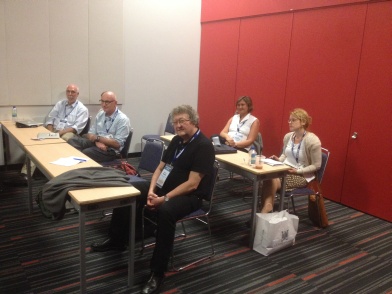30Jul 2018
Activities
14:24 - By Dr. Erik Fritzsche
Parliamentary Committees in the Policy Process
Parliamentary Committees are often seen as the central place where policy is made in modern democracies. They do exist in almost all parliaments today, in democratic and non-democratic systems, in parliamentary and presidential democracies. Political science has provided very useful comparative studies on the formal settings of committees in Western democracies, but some of them need to be updated after a few decades have passed. There has also been some investigation on committee assignment and its determinants more recently. However, what exactly is going on inside committees has not been studied very much, not the least because committees traditionally have held their sessions closed to the public in many parliaments and thus data access has been difficult.
As a first step towards better understanding, a more explorative approach is necessary to figure out what goes on in committees, how it is related to institutional characteristics and what the current developments are.
The book aims to build on the existing research and go beyond it by following three goals:
- to update the studies of institutional indicators in order to reflect recent changes in formal procedures and informal practices,
- to extend the perspective beyond the walls of the parliamentary buildings and investigate the influence of parliamentary committees – and the actors within them – in the respective policy networks,
- to broaden the perspective beyond liberal democracies and include political systems in current or recent transition.
Contributors to this research project have developed and discussed a common research framework during and after a joint workshop held in Valencia, Spain, in October 2019. It combines a neo-institutional perspective with the catalogues of parliamentary functions and the research framework of the policy cycle.
The main objective of the project is to work out the role of parliamentary committees in policy making of various political systems through a detailed and thick description of country cases based on a common research framework. By investigating committees in numerous parliaments, it can lead to a better academic understanding, help to improve parliamentary communication and assist in parliamentary development efforts worldwide.
First results will be published in an edited volume in 2021 by Routledge. Editors are Hilmar Rommetvedt and Sven T. Siefken with the following chapters:
- Sven T. Siefken and Hilmar Rommetvedt: Engine Room or Decoration? A Research Framework on Parliamentary Committees in the Policy Process
- Ali Sawi: Assist, not only Assess: A Preliminary Analysis of Committees in Arab Parliaments
- Flemming Juul Christiansen and Henrik Jensen: Bargaining Within but Mostly Outside Legislative Committees in Denmark
- Tapio Raunio: Committees in the Finnish Eduskunta: Cross-Party Cooperation and Legislative Scrutiny Behind Closed Doors
- Claire Bloquet: Making Committees Matter? A Tale of Chasing and Missing the Right Reform in the French National Assembly
- Ernest Darfour: From ‘a Rubber Stamp’ to Policy Influencing Committees: The Parliament of Ghana in Critical Perspective
- Sven T. Siefken: No Paradise of Policy Making. The Role of Parliamentary Committees in the German Bundestag
- Csaba Nikolenyi: Parliamentary Committees and Negative Agenda Control in the Hungarian Parliament, 1998 to 2018
- Chen Friedberg: Dimensions of Committee Strength: Legislative and Oversight Powers of the Parliamentary Committee System in Israel
- Ellis S. Krauss and Kuniaki Nemoto: Japan's Unusual but Interesting Parliamentary Committees: An Arena and Transformative Model?
- Benjamin Ekeyi: The Role of Legislative Committees in Nigeria. Bridging the Gap Between Theory and Practice in Oversight Functions
- Hilmar Rommetvedt: Norwegian Parliamentary Committees: Sidelined in the Policy Process?
- Pablo Oñate and Bernabé Aldeguer: Strong Committees, Weak Members. The Committee System in the Spanish Congreso de los Diputados
- Ömer Faruk Gençkaya: Limited Influence after the Constitutional Reform of 2017. Legislative Committees in the Grand National Assembly of Turkey, 2002 to 2020
- Irina Khmelko, Oleksii Bruslyk and Liudmyla Vasylieva: Legislative Committees in the Policy Process: The Case of the Ukrainian Parliament
- Mark Goodwin, Stephen Holden Bates, Stephen McKay, Louise Thompson: Deviant No Longer? The Development and Reform of the UK House of Commons Committee, 1979 to Present
- Sven T. Siefken and Hilmar Rommetvedt: Conclusion: Misunderstood Mechanisms of Committees in the Policy Process
LAWRENCE LONGLEY ARCHIVE
RC08 is working on an archive to commemorate the work of the late Lawrence Longley. Professor Longley was Chair of RC08 for a number of years and published extensively on legislative issues and American political institutions. Part of the archive work is to obtain working papers of the late Professor Longley with Lawrence University. RC08 is planning on placing an archive on library website and making it available to readers around the world.
DAVID OLSON PRIZE 2020
RC08 is planning to announce the David Olson Prize for the best IPSA World Congress paper on parliamentary issues by a junior scholar. The David Olson Prize will first be rewarded for a single-authored paper by a scholar below the age of 35 (or with a PhD completed no more than seven years ago) presented at the 26th IPSA World Congress in Lisbon.
Details of the Call for the David Olson Prize will be available on the RC08 website soon.
Parliaments and COVID-19: Roundtable discussion with views from Israel, Canada, Germany, and the UK
See here for the video of the discussion.
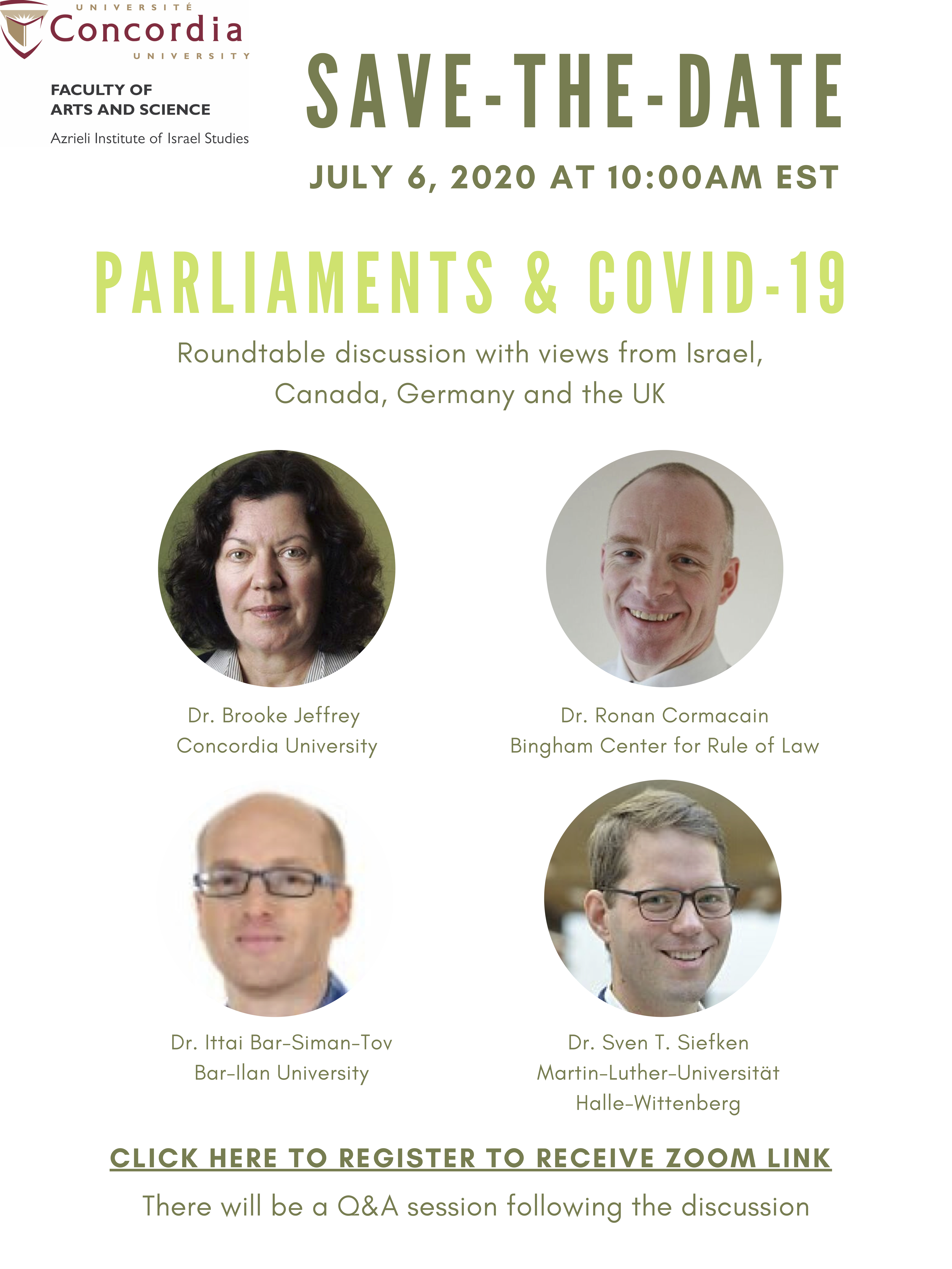
Conference on Parliaments in the 21st Century
As part of the Annual Meeting of the SPSA, RC08 will conduct a conference “Legislatures in the 21st Century: Roles, Issues, and Solutions”. The selected papers are meant to discuss, inter alia, the roles of legislatures, responses to executive challenges, and changes in legislative institutions. The conference will be held in San Juan, Puerto Rico, 9 to 11 January 2020. There will also be an Expert Roundtable on “Legislatures in the 21st Century: Roles in the Age of Rising Populism and Authoritarianism” organized by RC08-Legislative Specialists.
For further information please contact Irina Khmelko: Irina-Khmelko@utc.edu.
Workshop on Parliamentary Committees in Valencia, Spain
In October 2019, IPSA Research Committee 08 Legislative Specialists organized a workshop in Valencia, Spain, on the role of parliamentary committees.
According to the conventional knowledge, strong committees are a necessary if not sufficient condition for strong parliaments. However, several of the papers presented at the workshop indicate that there may be a gap between formalities and realities, and that the role of parliamentary committees needs to be re-interpreted.
Scholars from various countries presented papers on parliamentary and legislative committees in Arab countries, Australia, Denmark, Finland, France, Germany, Hungary, Israel, Norway, Spain, Turkey, and UK. The intention is to publish a book that will also include papers on Ghana, Nigeria, and Ukraine.
The workshop was organized by Sven Siefken (Martin-Luther-Universität Halle-Wittenberg) and Hilmar Rommetvedt (NORCE Norwegian Research Centre, member of the IPSA Executive Committee), together with Pablo Oñate (Universidad de Valencia, member of the IPSA Executive Committee) and Zdenka Mansfeldova (Czech Academy of Sciences, Chair of RC08). The workshop was generously sponsored by the Generalitat Valenciana.
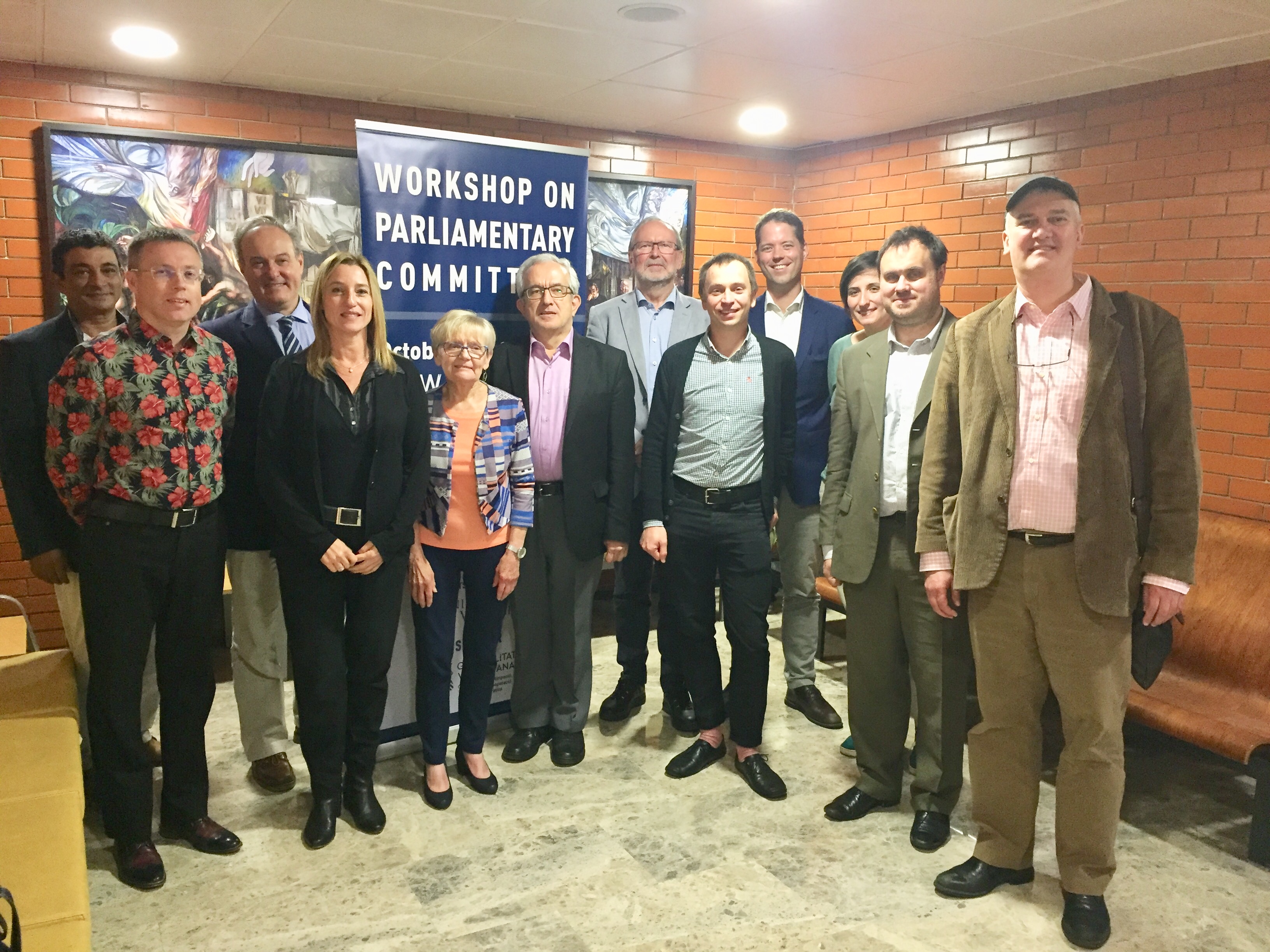
ECPR GENERAL CONFERENCE 2019 – SECTION ON PARLIAMENTS
“Parliaments and the Quality of Representative Democracy” is the name of a section with eight panels that got accepted for the ECPR General Conference in Wroclaw, September 4-7, 2019 on the initiative of our Standing Group. Call for papers and panels is open with deadline, February, 18, 2019. See the section and panel descriptions here.
RC08/RCLS organized a session with 7 panels including 36 papers at the 25th World Congress of Political Science in Brisbane, Australia, July 21-25, 2018
RC08 Session Chairs: Zdenka Mansfeldova and Hilmar Rommetvedt.
- Internet and Representative Democracy, chair Da-Chi Liao, discussants Cheng-Shan (Frank) Liu and Alexander Tan.
- Executive-legislative Relations, chair Hilmar Rommetvedt, discussant Timothy Power.
- Governing, Representation and Democracy, co-chairs John Erik Fossum and Russell Solomon, discussant Hans-Joerg Trenz.
- Legislative Agenda Setting, Policy-making and Oversight, chair Julia Schwanholz, discussants Peter Lilienfeld and Michael Edinger.
- Roundtable - Authors Meet Critics: A Roundtable Discussion on "Coalitional Presidentialism in Comparative Perspective", co-chairs Svitlana Chernykh and Timothy Power, discussant Benjamin Reilly.
- The New Roles of Parliamentary Committees Revisited, chair Ken Coghill, discussant Zdenka Mansfeldova.
- Voluntary and Involuntary Exits from Parliaments: Post-parliamentary Careers of MPs, co-chairs Michael Edinger and Marija Taflaga, discussant Sven T. Siefken.
CALL FOR PAPERS: THE FOURTEENTH WORKSHOP OF PARLIAMENTARY SCHOLARS AND PARLIAMENTARIANS, 27-28 JULY 2019, WROXTON COLLEGE, OXFORDSHIRE, UK
We are delighted to announce the Fourteenth Workshop of Parliamentary Scholars and Parliamentarians, which is to be held on Saturday 27 July and Sunday 28 July 2019. The venue is the same as for earlier Workshops: Wroxton College in Oxfordshire, UK, an ideal venue for international gatherings. See here for the Call for Papers.
Here are the minutes of RCLS business meeting in Brisbane, held on 23 July, 2018.
These are RCLS’s activities in Washington DC in 2016.
Dupont Summit 2016: Research Committee for Legislative Specialists Panel, https://www.youtube.com/watch?v=3hGB28tat7Q
Dupont Summit 2016: Excerpt from Expert Table Discussion, https://www.youtube.com/watch?v=y2_1F0pUHFQ
Here are the minutes of RCLS business meeting in Poznan, held on 27 July, 2016.
RC08 coordinated 9 panels at the 24th IPSA World Congress in Poznán
The panels and papers covered various aspects of parliamentary government, such as representation and gender issues, executive-legislative relations and accountability, parliamentary activities and legislative development programs etc.
Full list of panels:
• Parliamentary Activities, Career Tracks and Accountability (joint panel with RC02 Political Elites) convenor: Julien Navarro
• Parliament's Fiscal Scrutiny Function convenor: Helaina Gaspard
• How Can We Fix Representative Democracy? convenor: Dachi Liao
• European Legislatures/Developments convenor: Hilmar Rommetvedt
• Executive-Legislative Relations convenor: Hilmar Rommetvedt
• Shaving a Square Peg for a Round Hole: Implementing Fixed Donor Plans in Changing Legislatures convenor: Robert Nakamura
• Parliamentary Capabilities for a World of Inequality convenor: Ken Coghill
• The Representation of Complex Diversity in Upper Chambers (joint panel with RC34 Quality of Democracy) convenor: Manon Tremblay
• Gender-Focused Parliamentary Bodies – Criteria for Success and Failure (joint panel with RC19 Gender Politics and Policy) convenor: Manda Green
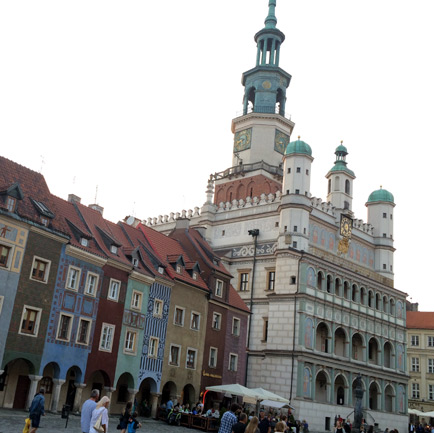
IPSA World Congress, Montreal 19 – 24 July 2014 RCLS/RC08 panels and business meeting
The business meeting of RC08-Legislative Specialist was held on Wednesday, July 23rd, 2014 in Montréal. Here are the minutes of the meeting.
Here are some impressions of RCLS committees at Montreal.
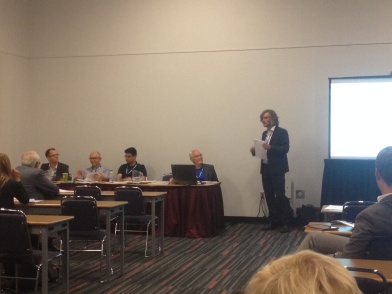
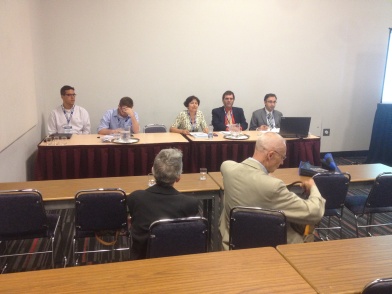
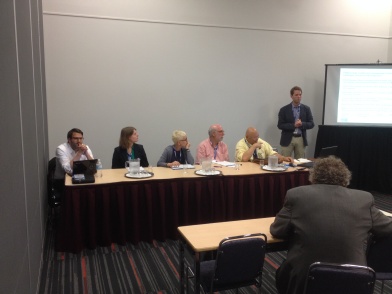
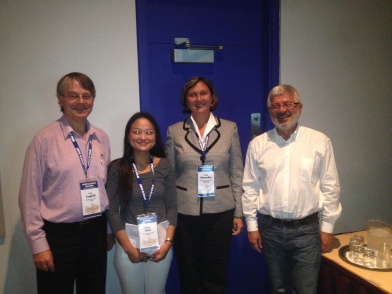

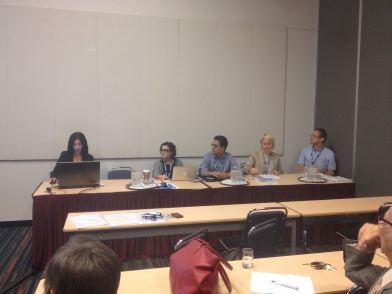
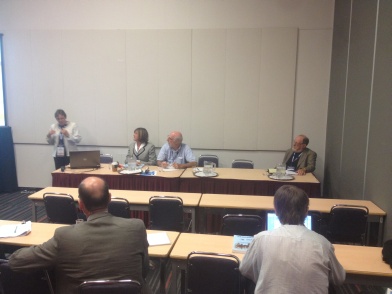
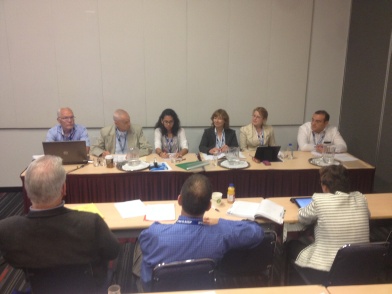
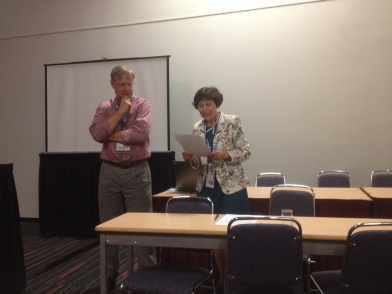
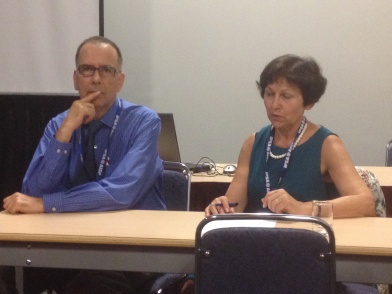

RCLS met in Madrid 2012: New Officers and Business Meeting RCLS members have met in Madrid where they had several panels. In an extensive business meeting they have elected new officers. Peverill Squire from University of Missouri and Zdenka Mansfeldová from the Academy of Sciences of the Czech Republic are the new Co-Chairs. Hilmar Rommetvedt was elected Program Chair. Werner J. Patzelt from Dresden University of Technology is officially holding the office of past-co-chair. (See here for contact information). In the future, maybe at the IPSA World Congress in Montreal, RCLS can consider ways of bringing closer colleagues from Asia in a similar way like the colleagues in the US.This would help to increase the visibility of RC08. The RC08 is interested in strengthening the linkages to the national political science associations, as more links between RC08 and domestic political scientists leads to higher RCLS exposure. Another issue is the possible attempt to try to find funding possibilities for comparative initiatives in the future. See here for the business minutes.
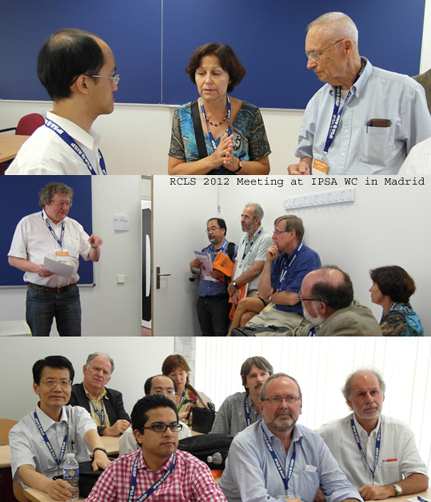
Southern Political Science Association 83rd Annual Meeting January 12-14, 2012 - - - Hotel InterContinental New Orleans, Louisiana
SPSA 2012: http://www.spsa.net/
Round Table: Legislatures in Post Authoritarian Countries: Historic Comparisons and Contrasts
Copeland and Patterson (1998) identified three key and necessary functions of a legislature: “linkage (or representation), legitimacy (“the public recognition and acceptance of the right of parliament and the government generally to act in some manner and the corresponding obligation of citizens to abide by that action”), and policy-making (addressing the key problems of the policy). The success in performing these functions often depends on the institutional design these legislatures adopted which frequently affect policy outcomes.
This round table discussion will focus on legislatures in post-authoritarian societies. Some of these legislatures developed independent from executive’s roles and asserted effective policy roles and succeed in performing their legislative functions. The others, however, regressed to a rubber stamp to the executive roles and struggle with performing some or all functions. The discussion will focus on what actors and what specific behaviors of these actors serve as impediments to the development of independent legislative roles. It will also discuss mechanisms that these legislatures have used in asserting independent policy roles and ability to influence policy process.
Participants will engage in an open discussion on modern legislatures, structures, functions, rules and procedures and discuss the process of development of these post-authoritarian legislatures. We are hoping to find some answers, but we also hope to formulate questions that will generate future academic discussions and will aid practitioners in their daily work. This is a timely discussion among prominent academics and practitioners on most pressing subjects related to modern legislatures in post authoritarian societies. These legislatures are frequently referred to as cornerstone of democratic developments in these societies. Failures to assert this role is frequently associated with the failure of democratic reforms.
Participants (in alphabetical order):
N. Johnston/ World Bank, Senior Staff D. Olson/ North Carolina at Greensboro W. Patzelt/ German Academy F. Stapenhurst / World Bank Institute P. Squire/ LSQ Senior Editor E. Valentine/ USAID, Senior Staff
Moderator: Irina Khmelko/ UTC
Celebration of a Publication Panel: Two Decades of Post-Communist Parliaments: Four books and more
The sudden collapse of communism over two decades ago stimulated not only the rapid emergence of fledgling democracies but also scholarly attention to the post-communist transition and the ensuing initial decades. Parliaments in particular, along with political parties and elections, were the object of RCLS conferences, journal articles, and books on the beginnings of democratic, or at least post-authoritarian, institutions.
To systematically review democratic institutions at their beginning was both a unique opportunity and challenge for social scientists. Now that we have published two books on post communist parliaments – First Decade, and, Second Decade – we have an opportunity to review and reconsider our initial conclusions. Publication deadlines are behind us. We now have the opportunity for non-rushed conclusions.
The close of the second decade is an opportune moment to examine the paths of development experienced by post-communist parliaments. They have survived, but not in the same way; they are evolving in very different directions. We are more writing about the diversity than similarities among the 20+ former Communist countries and their parliaments.
The literature on post-communist political developments, including parliaments, has become one of the more intensive reviews of the beginnings of post authoritarian politics of any set of new parliaments in the post-World War II period. Ours is also among the few which examine the dynamics of events over time. We have had a beginning to begin with.
Each of the four books on post-communist parliaments has been a group effort, with authors from many countries and social science traditions. The RCLS panel in New Orleans, January 2012, is an opportunity for us to both celebrate and to ask, “what now do we think we should we have done?”
RCLS Mini-Conference in New Orleans, Louisiana, USA
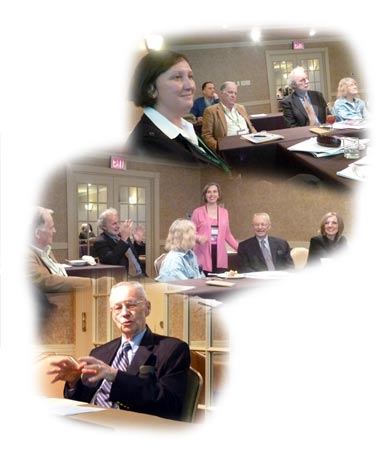 RCLS organized a mini-conference within the framework of the Annual Meeting of the Southern Political Science Association (SPSA) in New Orleans, USA in January 2012. This has been the third in a row event organized in collaboration with SPSA. This year the mini-conference consisted of round table discussions, a special event, and a business meeting as well as traditional RCLS dinner. Round table discussions focused on legislatures in post-authoritarian societies. Participants engaged in an open discussion of modern legislatures, structures, functions, rules and procedures. In addition, RCLS conducted a special event “Celebration of a Publication Panel: Two Decades of Post-Communist Parliaments: Four books and more”, which had been dedicated to the work of Dr. Olson and the other members of RCLS on post-communist parliaments. Participants had an opportunity to review and reconsider initial conclusions. Each of the books on post-communist parliaments had been a group effort, with authors from many countries and social science traditions. The RCLS panels in New Orleans gave an opportunity for us to both celebrate and to ask, “what now do we think we should we have done?” Participants discussed future plans at the RCLS business meeting and decided to continue collaboration between academics and practitioners of legislatures at the next mini-conference of RCLS within SPSA in January 2013.
RCLS organized a mini-conference within the framework of the Annual Meeting of the Southern Political Science Association (SPSA) in New Orleans, USA in January 2012. This has been the third in a row event organized in collaboration with SPSA. This year the mini-conference consisted of round table discussions, a special event, and a business meeting as well as traditional RCLS dinner. Round table discussions focused on legislatures in post-authoritarian societies. Participants engaged in an open discussion of modern legislatures, structures, functions, rules and procedures. In addition, RCLS conducted a special event “Celebration of a Publication Panel: Two Decades of Post-Communist Parliaments: Four books and more”, which had been dedicated to the work of Dr. Olson and the other members of RCLS on post-communist parliaments. Participants had an opportunity to review and reconsider initial conclusions. Each of the books on post-communist parliaments had been a group effort, with authors from many countries and social science traditions. The RCLS panels in New Orleans gave an opportunity for us to both celebrate and to ask, “what now do we think we should we have done?” Participants discussed future plans at the RCLS business meeting and decided to continue collaboration between academics and practitioners of legislatures at the next mini-conference of RCLS within SPSA in January 2013.
RCLS Meeting in Prague on "Changing Modes of Parliamentary Representation"
 RCLS met in Prague together with RECON WP3 for a workshop on "Changing Modes of Parliamentary Representation". The conference underlined the great variety of parliamentary research in both theoretical and methodological terms: Papers dealt with national parliaments and the EU, the EP, parliaments in the process of democratization and institutionalization, the theory of institutional evolution, the theory and practices of representation in Europe, France and Germany, socialization of newly elected MPs, corporatism and the revival of parliaments. The presented research dealt with purely theoretical topics, some relied on a heavily quantitative, others on a purely qualitative methodology, and some sought to combine both approaches.
RCLS met in Prague together with RECON WP3 for a workshop on "Changing Modes of Parliamentary Representation". The conference underlined the great variety of parliamentary research in both theoretical and methodological terms: Papers dealt with national parliaments and the EU, the EP, parliaments in the process of democratization and institutionalization, the theory of institutional evolution, the theory and practices of representation in Europe, France and Germany, socialization of newly elected MPs, corporatism and the revival of parliaments. The presented research dealt with purely theoretical topics, some relied on a heavily quantitative, others on a purely qualitative methodology, and some sought to combine both approaches.
RCLS had a business meeting on Friday. Here are the minutes.
Social events with lively discussions on politics and papers included a nice dinner with a spectacular outlook on the beautiful city of Prague. The well organized conference and the friendly team from the Institute of Sociology of the Czech Academy of Sciences turned the good and fruitful conference into an excellent one. Na shledanou, Česká republika! 
RCLS's at the SPSA annual meeting in New Orleans
RCLS met at the 82nd Annual Meeting of the Southern Political Science Association (SPSA) in New Orleans, Louisiana, USA on January 6-8, 2011. The RCLS organized three panels, one independent and two in collaboration with the World Bank Institute group. The discussion centered on a variety of theoretical issues in legislative institution building and practical implications of the research. In discussing implications of legislative institutionalization to the practice of democratic reforms, our scholars lead panel discussions on subjects of electoral process, legislative process, legislative oversight as well as roles of parliamentary party groups, committees, and leadership in these processes. These discussions allowed RCLS identify some of the areas that may prove to be interesting for future research and conference discussions including studies of legislative-executive relations, constituencies, parliamentary benchmarks and performance indicators, and public account committees and their roles in oversight.
 The RCLS panel in New Orleans
The RCLS panel in New Orleans
RCLS Panel on the PSA Conference in Edinburgh 2010
From March 29th to April 1st 2010 in Endinburgh/UK PSA Conference "Sixty Years of Political Studies: Achievements and Futures" was held. RCLS had a Panel organized by its Co-Chair Peverill Squire headlined "The Past, Present, and Future of Bicameralism". See here for more information on the panel.
RCLS Panel on the IPSA Conference in Luxemburg 2010
From March 18th to March 20th 2010 IPSA Conference "Is there a European Model of Governance? A Comparative Perspective” was held in Luxemburg: the RCLS co-chaired a panel on “European, National, and Regional Parliaments and EU Law-Making”. The panel concentrated on the principles of democratic representation in European Model of governance. Results from both theoretical and empirical research was presented to get a comprehensive picture of different challenges to democratic representation. Complementary to this papers were presented on how parliamentary bodies react on this changing political environment and representation beyond the nation-state.
This is the full description of this panel.
The following papers were presented in the RCLS Panel in Luxemburg:
- Exploring Careers in the Multi-Level European System: The Case Of Members Of The European Parliament (Michael Edinger, Friedrich Schiller University Jena)
- Civil Society and the Legitimacy Of The EU Polity (Petra Guasti, Academy of Sciences of the Czech Republic)
- Patterns of Variation in Inter-Parliamentary Coordination in EU Decision-Making. The Case of the Austrian Parliament. (Eric Miklin, Free University Amsterdam)
- On Political Representation: Myths And Challenges (Johannes Pollak, Webster University Vienna)
- The Content And Quality Of Representation In The European Assembly: Towards Building An Updated Discourse Quality Index At The EU Level (Dionysia Tamvaki, University of Reading; Christopher Lord, ARENA University of Oslo)
- Forms Of Representation In EU Governance (Richard Rose, University of Aberdeen)
See the full program of the conference here.
RCLS Meeting at the Annual Meeting of the Southern Political Science Association in Atlanta 2010
RCLS met at the Annual Meeting of the Southern Political Science Association in Atlanta, GA, from January 7 to January 9 2010. Irina Khmelko from Georgia Southern University at Statesboro organized two panels on behalf of RCLS: “Legislative Institution Building in Developing Democracies” and "Parliamentary Audit and Scrutiny of Ex-poste Government Spending". RCLS also had its business meeting there (see here for the minutes). RCLS's social activities included dinner where committee members met after a day of work at the conference.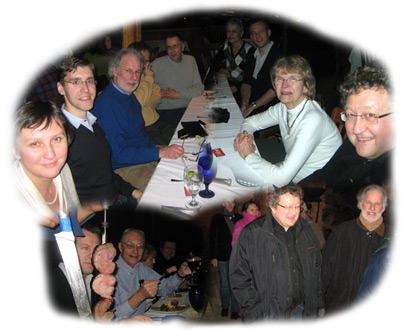
Workshop on Parliamentary Surveys in Berlin (2009): "Interviewing Members of Parliament"
From 12-13 September 2009, organized by RCLS in co-operation with the Collaborative Research Centre 580 in Jena/Halle and the gesis/Leibniz Institute for the Social Sciences the Berlin workshop aimed to foster comparative research on Members of Parliament. Parliamentary researchers from nine mostly Central and East European countries discussed a core set of questions to be included in upcoming (national) MP surveys (see the final program here). Participants agreed on general terms of co-operation (General Agreements) and decided on the first questions of the core set (Core Set). The organizers along with Zdenka Mansfeldová (Prague) and José Magone (Berlin) will look for funds to institutionalize the existing network. In the meantime co-operation shall be continued through electronic correspondence with a focus on completing the core set of questions. Scholars willing to join the network are invited to contact Michael Edinger.
RCLS Meeting at the IPSA World Congress 2009 in Santiago de Chile
From July 12th to July 16th RCLS met at the IPSA World Congress 2009 in Santiago de Chile. RCLS had four panels at this congress addressing the following problems: comparative analysis, methodological frontiers, organizational evolution, and the performance of legislatures 'under siege'. Here is a list of documents with information regarding our meeting in Santiago de Chile:
- Description of RCLS' Panels at Santiago de Chile;
- Minutes of RCLS Business Meeting in Santiago de Chile 2009.
The next activities of RCLS already cast their shadows ahead, see our Upcoming-Section.
RCLS Conference 2008 in Dresden
 In September 2008 members of RCLS met in Dresden, Germany, to discuss paths of legislative development in second decade post-communist parliaments. and the evolution of parliaments. 'Social activities' included a visit to the Dresden City Council with reception of a representative of the mayor and a visit to the Dresden Konrad Adenauer Foundation. In addition, a sightseeing tour to the Upper Elbe Valley was organized.
In September 2008 members of RCLS met in Dresden, Germany, to discuss paths of legislative development in second decade post-communist parliaments. and the evolution of parliaments. 'Social activities' included a visit to the Dresden City Council with reception of a representative of the mayor and a visit to the Dresden Konrad Adenauer Foundation. In addition, a sightseeing tour to the Upper Elbe Valley was organized.
You can find the following conference materials here: Conference Program Dresden (PDF).
Other activities of RCLS in the last years
Here is a list of the conferences and panels of RCLS. Additionally, here you will find a list of past puplications that resulted from RCLS conferences.
